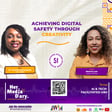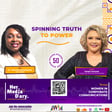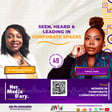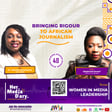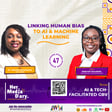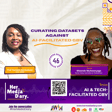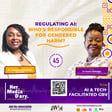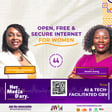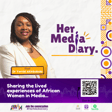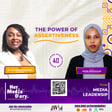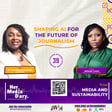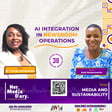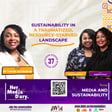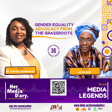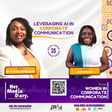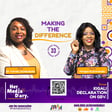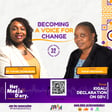
Her Media Diary Episode 41: “Can AI Intervene for Women” with Rebecca Mutiso
Rebecca Mutiso is the Manager of Accreditation and Compliance at the Media Council of Kenya.
Rebecca's story begins in Nairobi, where she grew up in a vibrant household with her siblings and cousins. Despite facing poverty, her parents instilled in her the importance of education and self-advocacy. From a young age, Rebecca was known for her outspoken nature. This early foundation shaped her ambitions to either become a lawyer or a journalist—two fields where she believed she could make a difference.
Ultimately, Rebecca chose journalism, a decision that has led her to explore the intersection of artificial intelligence and media. With over 17 years of experience in the industry, she has witnessed firsthand the transformative power of technology in storytelling. Rebecca emphasizes the need for female journalists to embrace AI, not only to stay relevant but to utilize it responsibly and ethically.
One of the most poignant points Rebecca raises is the digital gender divide that persists in society. Many women are discouraged from pursuing careers in technology, which often leads to a lack of representation in fields like AI. She works for the Media Council of Kenya, an organisation actively involved in creating guidelines for the responsible use of AI in media organizations, ensuring that women journalists have the skills to navigate this evolving landscape.
Subscribe to Her Media Diary now on your favourite podcasting platform https://linktr.ee/hermediadiary
Learn about African Women in Media at https://africanwomeninmedia.com
List of Organisations/Resources to Support Women in Media
- Rise Women in Broadcast
- Journalist’s Toolbox:
- International Women’s Media Foundation (IWMF)
- African Women in Media (AWiM)
- Public Media Women in Leadership
- International Journalists’ Network (IJNet)
- Women’s Media Center (WMC)
- Media Career Development Network
- The World Journalism Education Council (WJEC)
- AWiM Learning
